Editor’s Note: This press trip was sponsored by Potato Head. Why did we take this trip? We were interested in highlighting lesser-known angles around Bali and how small artisans and creators are trying to get their message out there. Potato Head supported us in providing the types of access and resources we may not have been able to acquire on our own to pull this off. If you have any questions, feel free to reach out.
Beach clubs, bamboo cocktails, flip flops, and floral printed shirts: the usual scene at the now infamous, Desa Potato Head in Bali, Indonesia.
Earlier this summer, recently appointed Potato Head Director of Communications Karen Day stumbled across an interview we did on MAEKAN with Ariel Stark-Benz of LA’s Mister Green. Karen and Ariel have been friends and work associates for some time now, and the opportunity to tell a good story with the plus of getting exposure led her to extend an invite to the MAEKAN team to attend the inaugural Indonesia Now. The ask was simple enough: “Come through, see what we’re building out here in Bali.”
Indonesia Now is a self-proclaimed “showcase of archipelago-wide creativity and craftsmanship” curated by Potato Head and Bobobobo, a Jakarta-based specialty store that is paving the way for Indonesia designers and brands. Indonesia Now by all standards could be seen as an exhibition, a one-day exhibition that highlighted some of the most interesting homegrown art and design talent in Indonesia.
The event featured the work of 22 creatives whose work spread across several key dioramas: craft, fashion, and one specially designed by and focused on leading Indonesian artist Eko Nugroho. All of the “boxes” were shoppable, providing a way for artists to not only showcase their work but to garner support through sales. Rounding out the day’s festivities were seven curated food and drink stalls from the local culinary scene. The three shoppable exhibitions were complemented by two art installations, one highlighting photographs by Chris Bunjamin and Wimo Ambala, and the other featuring artworks by Natasha Tontey and Uji Handoko.
A special capsule collection of Indonesia Now apparel—designed, curated, and commissioned by the Potato Head and Bobobobo team alongside a curated selection of Indonesia brands—featured photo print tees from local photographers.
The exhibition started at the main entrance of Desa Potato Head that is highly trafficked by both guests of Katamama (Potato Head’s luxe hotel on site) as well as Beach Club attendees who flock every day through the main thoroughfare. Bold, colorful booths flanked both sides of the walkway, as if each tenant had their own pop-up shop.
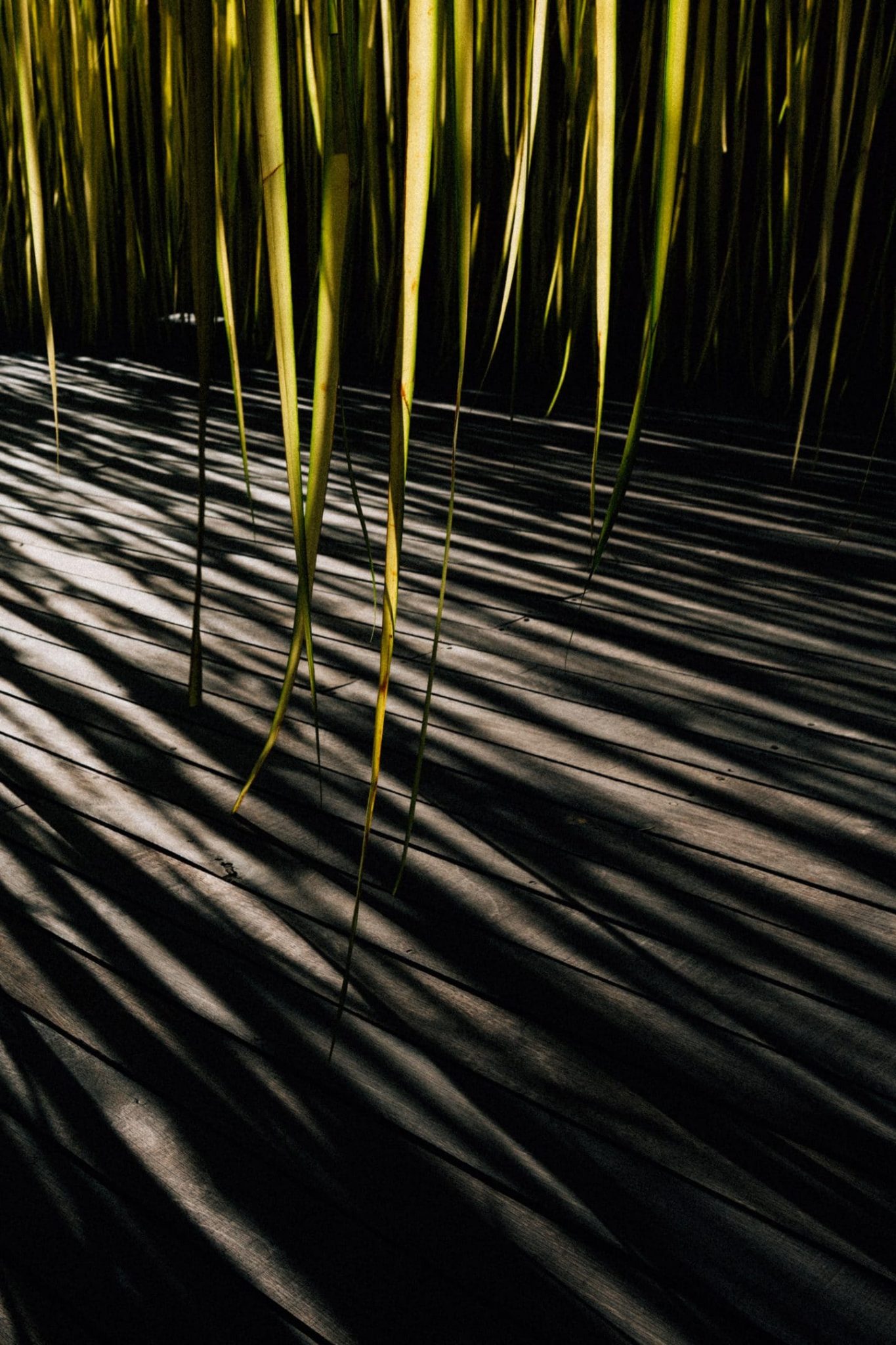
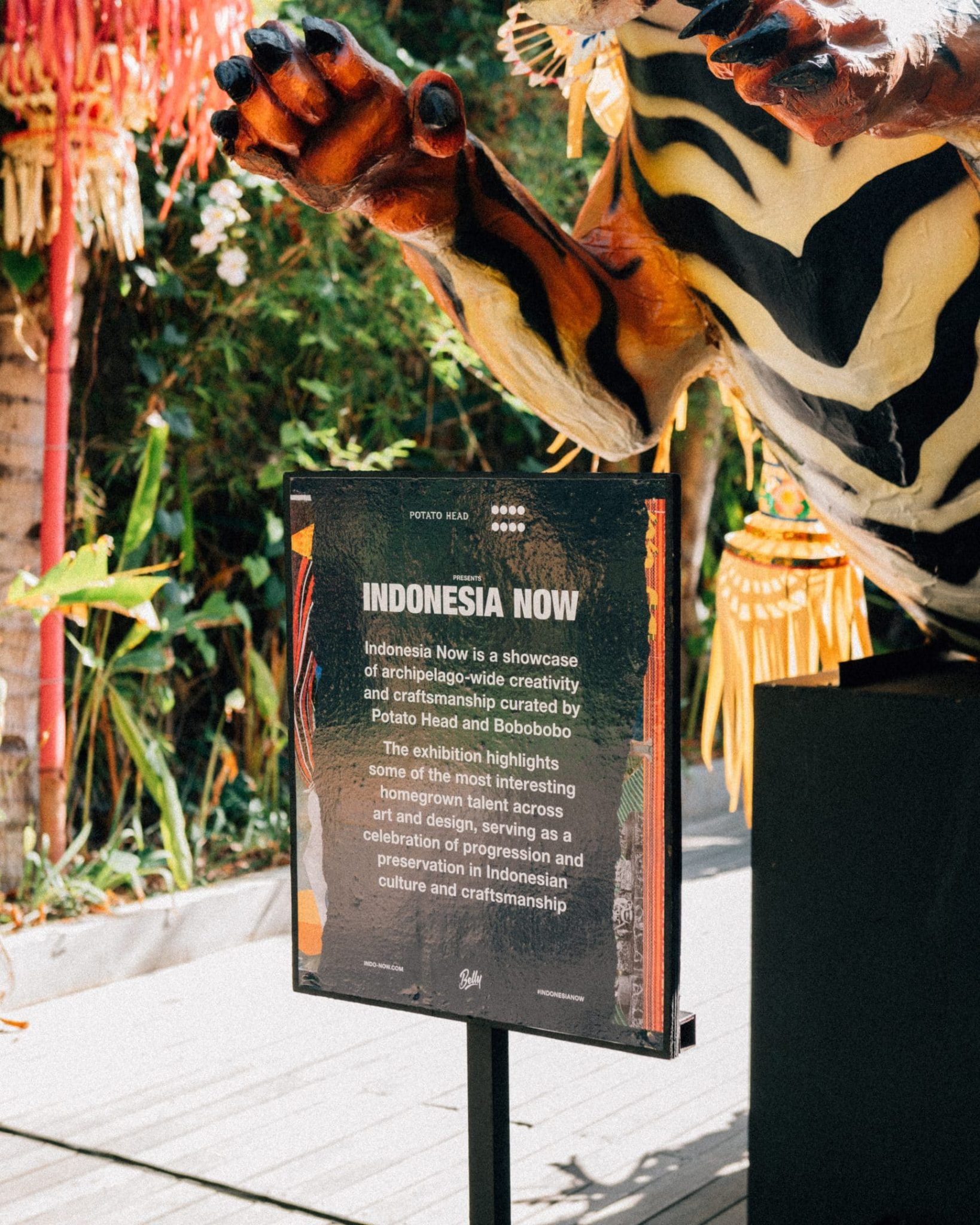
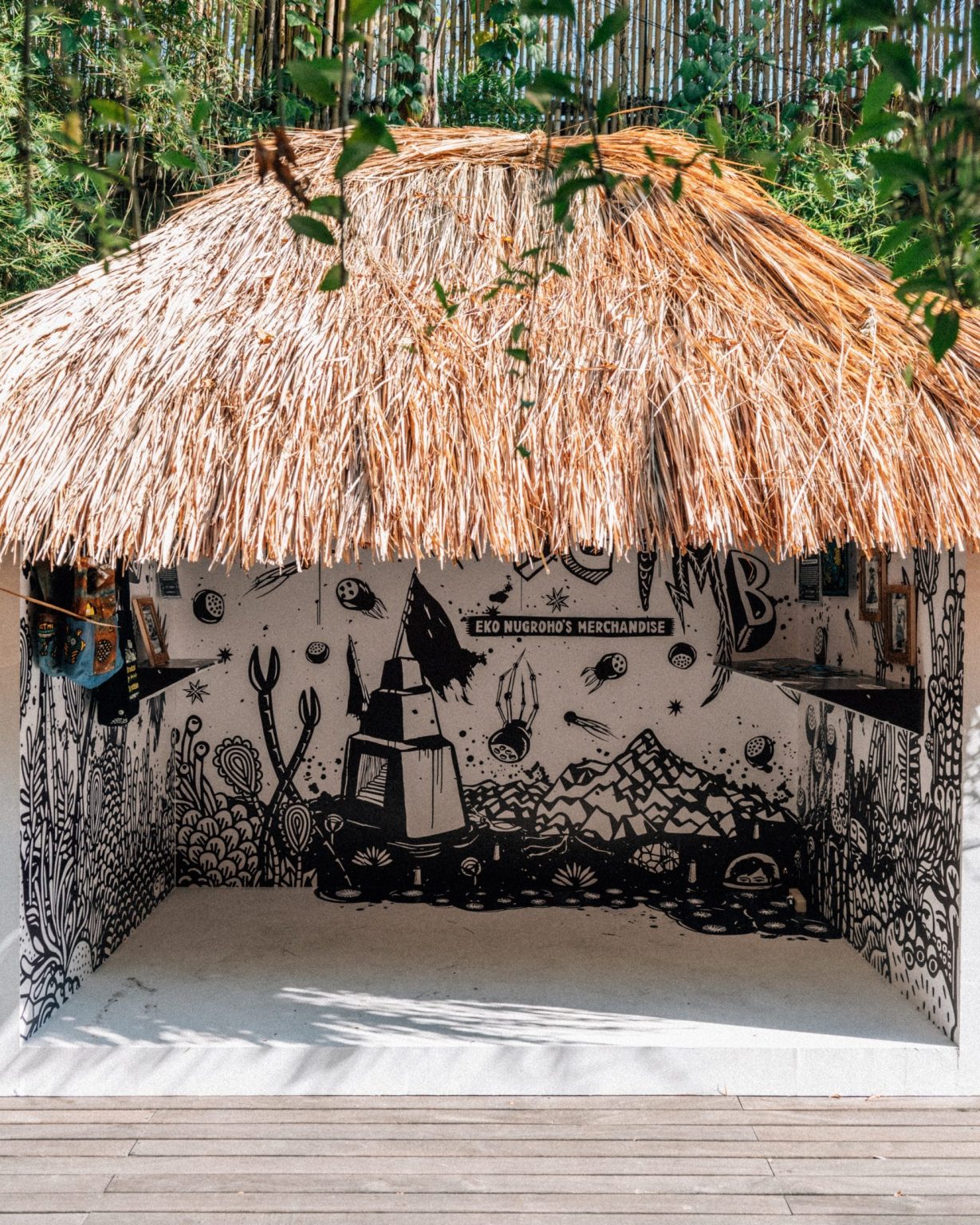
“The ask was simple enough: ‘Come through, see what we’re building out here in Bali.’”
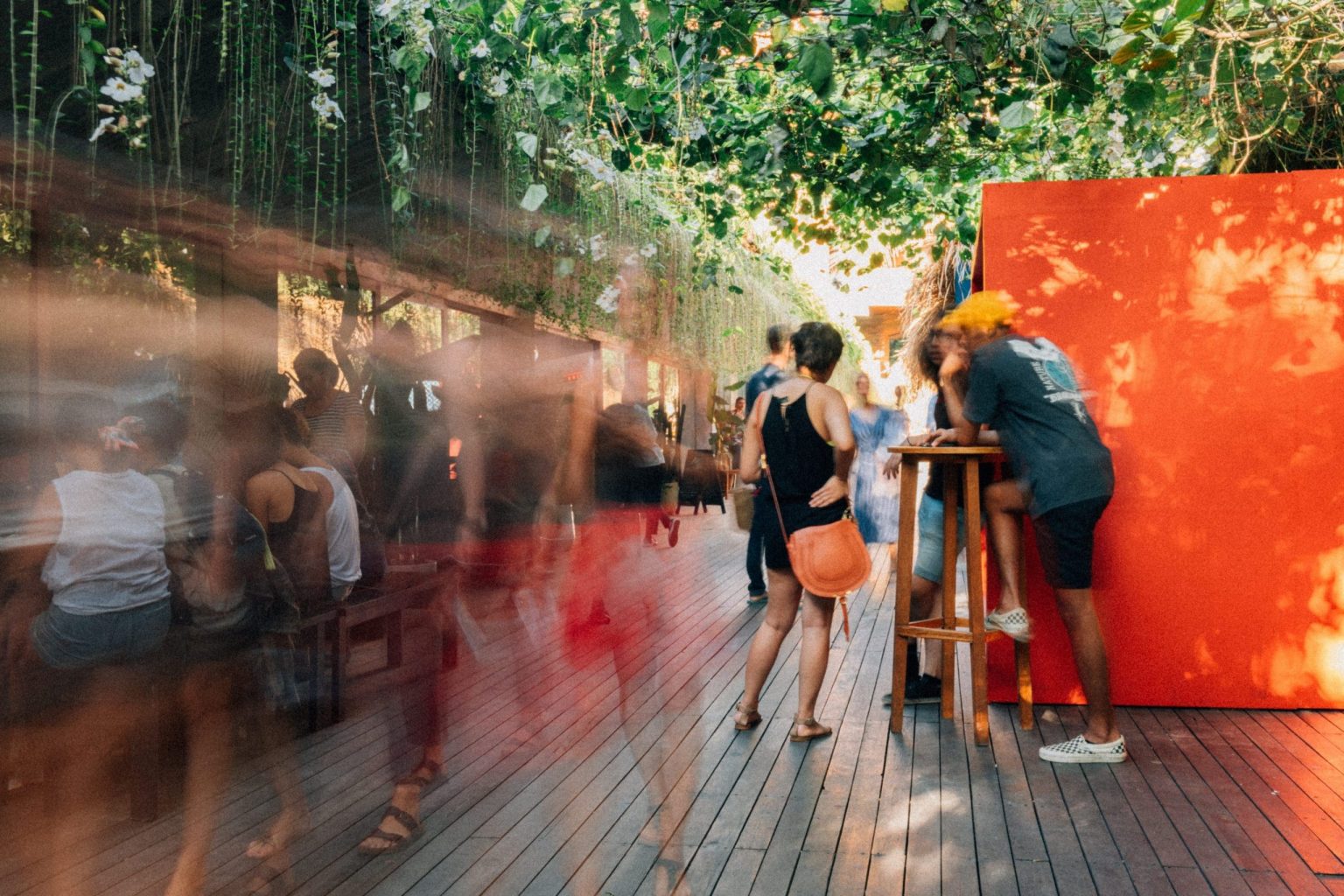
This was the first of many.
For many Indonesian designers and artists, it was the first time they were showcasing their work to both a local and global audience. Potato Head and Bobobobo were bringing to the table an array of broader, regional media to experience the exhibition—giving a newfound platform to the burgeoning creative scene.
The ubiquitous beach club trappings aside, the day at Indonesia Now felt different—in a good way.
Amidst the constant ebb and flow of boardshort loving, flip-flop rocking Australians and American couples courageously venturing beyond their villas in the hopes of indulgently Instagramming themselves at the Potato Head infinity pool, there was a distinct underpinning of Balinese culture that was being celebrated at Indonesia Now—a steady cultural drumbeat flowing through the revolving door that characterizes the typical Beach Club crowd.
Make no mistake: it was still a celebration, but perhaps one with a more evergreen impact.
This was the goal.

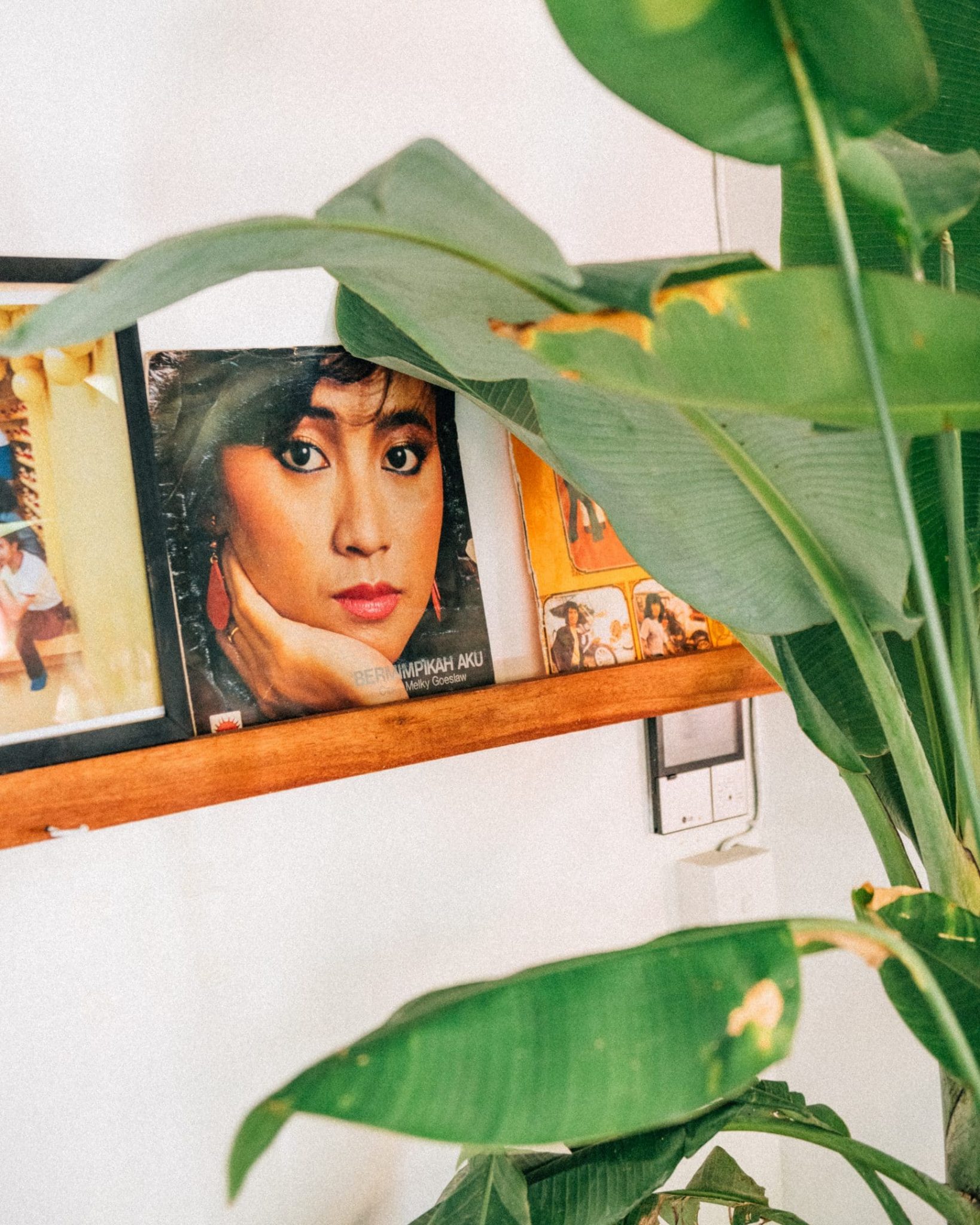
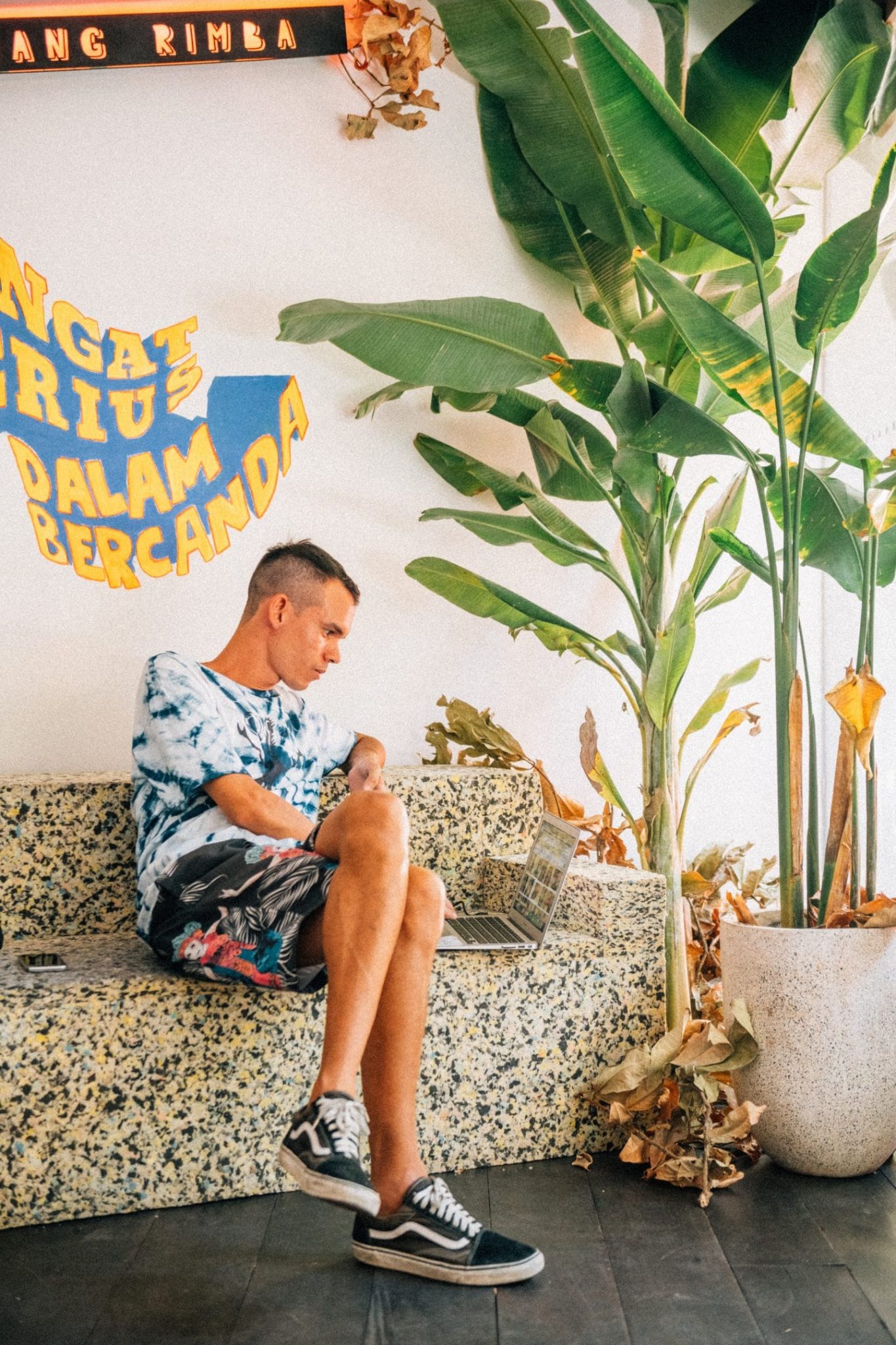
Since its inception, the team at Potato Head has always kept balance firmly set within its crosshairs, straddling the line between its global guests and loyalists, as well as the time, place, and neighborhood where it’s undeniably rooted. As far as importing or exporting culture goes in Bali, the Potato Head Family has certainly established itself as one of the mainstay ambassadors within Indonesia and beyond. And so in that way, Indonesia Now was a natural evolution.
If anything, Indonesia Now was a bridge—or at least the start of one. Or perhaps it was the beginning of many connection points that are beginning to blend the seemingly disparate rhythms of the island nation into a single harmonized frequency.
It’s a bridge that connects the local creative culture scene to an upstream platform for creatives to be recognized on a global scale by the art and design community and beyond.
A bridge between what food, music, and creative culture can look like when supported by cultural authenticity and in a place too often seen as an opportunity for the fleeting whims of travelers looking to explore their range of extremes without the discomfort of exploring the uncertain.
For an island whose culture, creativity, hospitality, and passion is too often overshadowed (literally and figuratively) by the colored, gel lights of places like The W Hotel and whose voice is too often drowned out by generic pool DJs playing re-appropriated house music, Indonesia Now represents a true difference. It’s a step in the right direction that distills the richness of actual creativity and heritage into a multifaceted experience that drives culture forward.
“For an island whose culture, creativity, hospitality, and passion is too often overshadowed (literally and figuratively) by the colored, gel lights of places like The W Hotel and whose voice is too often drowned out by generic pool DJs playing re-appropriated house music, Indonesia Now represents a true difference.”



“Potato Head and Bobobobo were bringing to the table an array of broader, regional media to experience the exhibition—giving a newfound platform to the burgeoning creative scene.”




























